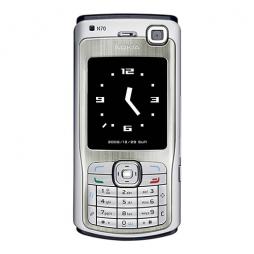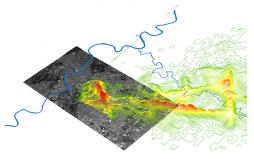mobile sensing
Posted by VivianOnano on Jun 30, 2011
Four Billion Little Brothers? Privacy, Mobile Phones, and Ubiquitous Data Collection. data sheet 1306 Views
Abstract:
Participatory sensing technologies could improve our lives and our communities, but at what cost to our privacy?They place calls, surf the Internet, and there are close to 4 billion of them in the world. Their built-in microphones, cameras, and location awareness can collect images, sound, and GPS data. Beyond chatting and texting, these features could make phones ubiquitous, familiar tools for quantifying personal patterns and habits. They could also be platforms for thousands to document a neighborhood, gather evidence to make a case, or study mobility and health. This data could help you understand your daily carbon footprint, exposure to air pollution, exercise habits, and frequency of interactions with family and friends.
Posted by AnneryanHeatwole on Oct 13, 2010
Today's Mobile Minute brings you coverage on mobile learning in South Africa, Egypt's pre-election SMS restrictions, Motorola's launch of dual SIM card handsets in India, a new mobile sensing tool, and India's extension of its deadline for banning RIM's BlackBerry services.
Posted by AnneryanHeatwole on Aug 17, 2010
The Mobile Minute is back with a video explaining the M-PESA mobile money service, news about maternal health insurance via mobiles, an app that helps users determine if a hybrid or plug-in car will be useful to their lives, a report on why you might want to turn off the geo-tagging system on your mobile, and FailFaire in The New York Times.
Posted by KatrinVerclas on Jun 17, 2008
We have written previously about mobiles as sensing devices to collect data and develop maps and understand patterns of human movement, traffic, air pollution, and even the spread of diseases. The mass-tracking of mobile devices and the use of mobiles as ubiqitous sensing devices are very promising but also have generated controversy, most recently when a Boston University study published in Nature revealed it has tracked 100,000 anonymized mobile phone users' position in an unidentified country (we suspect the UK) without these users' consent.

